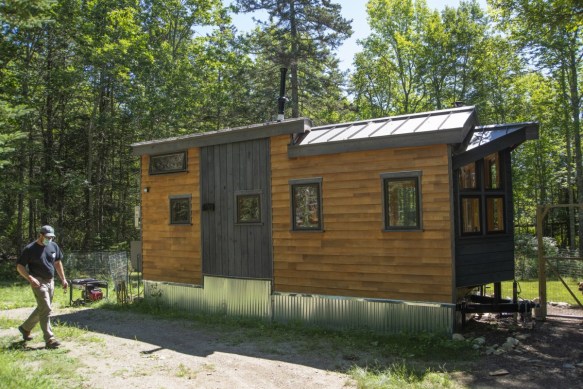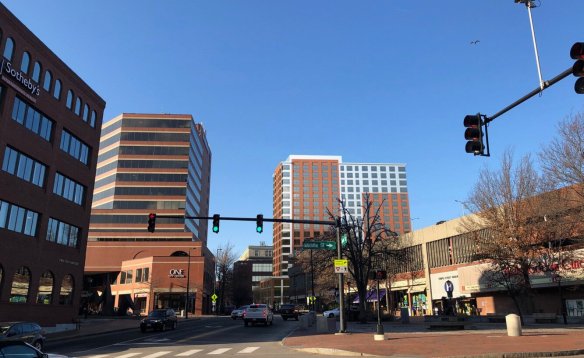Sears Island in Searsport will be the state’s new wind port site, where turbines and other components will be assembled and shipped to the Gulf of Maine, Gov. Janet Mills announced Tuesday.
Source: Press Herald

Sears Island in Searsport will be the state’s new wind port site, where turbines and other components will be assembled and shipped to the Gulf of Maine, Gov. Janet Mills announced Tuesday.
Source: Press Herald
Soil Preparation Inc., the private Plymouth-based company that owns the plant, was bringing in out-of-state sludge and local waste to process into farmland fertilizer. It had placed standpipes with sprinkler heads throughout the woods between its and Seavey’s properties to disperse the wastewater it had squeezed out of the sludge, a mixture of human, food and other waste that was about 80 percent liquid.
Source: Bangor Daily News
Maine Yankee, which in 1997 shut down its nuclear plant on Bailey Point and transferred 542 metric tons of radioactive waste into canisters there, paid annual property taxes to the town under an agreement that expired last year. The two sides have been unable to reach a new tax agreement and the Maine Department of Environmental Protection last year granted Maine Yankee a tax exemption based on a state law that gives breaks to industrial facilities for reducing air pollution.
Source: Press Herald
Communities across the state, from Kittery to Fort Kent and from the shoreline to the western mountains, are looking to the government to help them prepare for Maine’s warmer, wetter future, including more frequent and ferocious storms and a fast-warming, continually rising Gulf of Maine.
Source: Storm-battered Maine communities look to state funding to prepare for warmer, wetter future
The Portland City Council voted unanimously Wednesday to seize by eminent domain a parcel in Bayside that was part of the now-defunct “midtown” project. Councilors noted that the city had received a loan from the U.S. Department of Housing and Urban Development to build a public parking garage on Lot 6, 59 Somerset St.
Source: Portland Press Herald
A new requirement that all Falmouth short-term renters register their properties, with hefty fines for those who don’t comply, is drawing mixed reactions from owners and residents. The ordinance, approved by the Town Council July 26, stems from residents’ concerns about noise and congestion coming from vacation rentals like those advertised on sites such as Airbnb, according to Town Councilor Hope Cahan.
Source: Portland Press Herald
On Wednesday, Gov. Janet Mills signed a new law that gives tiny houses the same status as any other single-family dwelling in the state. This puts tiny homes on equal footing with traditional residences and subject to the same zoning and code requirements. Under this new law, tiny homes can have no larger than 400-square-feet of living space and ones on wheels count as dwellings as well.
Source: BDN

Portland city councilors narrowly approved the creation of a new historic district on Munjoy Hill and unanimously agreed to study the impacts of the city’s other historic districts, some of which have existed since the early ’90s. The 5-4 vote in support of the new historic district came more than two months after the council rejected the same proposal, and City Councilor Andrew Zarro, who initially opposed the plan, asked to reconsider the proposal.
Source: Portland Press Herald
A Superior Court judge ruling’s Wednesday may have created another hurdle for the builders of a 145-mile energy transmission corridor through northwestern Maine.
Justice Michaela Murphy ruled that the Maine Bureau of Public Lands did not have the authority to lease public reserve lands to CMP affiliate NECEC Transmission LLC, which is building the corridor, without first determining whether the lease would substantially alter the land in question. If a review finds the state-owned land would be significantly altered because of the lease, the question would go to the Legislature, Murphy ruled.
Source: Portland Press Herald
The Portland City Council voted unanimously Monday to grant a zoning change for a downtown high rise that would become the tallest building in the state – a title that currently belongs to Franklin Towers.
Redfern Properties wants to erect an 18-story building at Temple and Federal streets, behind the post office. Monday’s vote allows the developer to build housing on the upper floors of the 190-foot structure, which previous zoning would have prohibited.
City Councilor Belinda Ray, who represents the district, said she supported the change after the developer agreed to work with the owner of the Portland House of Music to design a building that would muffle noise coming from the entertainment venue across the street.
“I’m comfortable supporting this,” Ray said. “It’s going to give us much needed housing.”

Source: Portland Press Herald